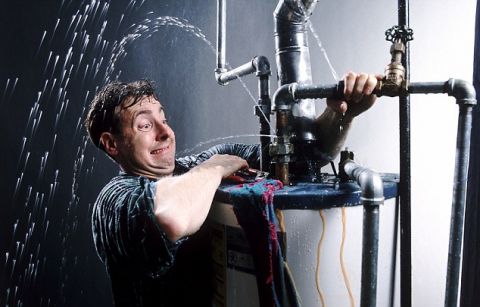Fixing your plumbing problem yourself is a fantastic DIY project to handle. It saves cost and could help with boredom.
As much as it could be fun, any mistake can get the whole house flooded and eventually lead to higher expenses than it would have cost if you had hired a professional to handle it in the first place.
Below are some common DIY plumbing mistakes and how to avoid them:
Wrong pipe size
For people trying DIY fix for their home plumbing issues, figuring out the sizes of materials for the repair is usually challenging. Some pipes are designed to connect with another in specific ways for effective functioning.
Confused DIYers are likely to use mismatched fittings that may complicate the overall problem of your plumbing. It is always advisable to get the required pipe sizes and, if necessary, change old pipes instead of trying to patch them.
“Homeowners following a failed DIY attempt usually fill the gaps of mismatched pipes with tapes. It can lead to tangled connections that might complicate the plumbing problem,” according to Scottsdale AZ Plumbers at Apple Plumbing.
Errors in tightening plumbing connections
The fear of not leaving anything to chance makes a lot of DIYers overtight connections to prevent leakages. They do this without realizing that the connections are designed to be watertight, while overtightening them may result in damage.
When fixing your plumbing, try not to apply too much pressure on the connection materials like rubber or plastic washers. Once you notice it’s firm, don’t push beyond that limit.
Not turning off the water
This is supposed to be the first thing to do before commencing any fixing. Unfortunately, some Do-It-Yourselfers don’t remember.
Executing an easy plumbing task may turn into a nightmare when the floor and walls of the house are flooded with water.
This may make identifying the location of the valve to turn off the water difficult. You are likely to get distracted by saving certain valuables instead as the situation worsens.
Inappropriate usage of drain line cleaners
Chemical drain cleaners can be useful when dealing with minor clogs in your pipe. At the same time, the chemical constituents of the cleaners may damage the pipes over time.
When repeatedly used and in excess, it may build up around the clogs and could be dangerous to anyone who comes close to it.
To safely unclog a drain, use natural cleaning mixtures made from hot water and baking soda are recommended. A drain snake can also be used to clear any clog obstructing flow in the pipe.
Missing required tools
Plumbing may appear easy when you watch a professional doing it. Most of the time, this is because the expert has all the necessary and required tools for all the tasks.
Doing it yourself may be tedious and could lead to more damage if you lack the required tools for the job. Trying to remove old galvanized nipples, for instance, using your everyday plyers, may damage the water pipe.
Take note of the pipe arrangement and connection to evaluate all the tools and materials you might need.
Abuse of duct tape
Duct tape has a wide range of applications when it comes to home repairs. This is why some DIYers, after complicating issues during their plumbing repairs, make use of it notably to stop leaks.
This is not a recommended fix as duct tape cannot efficiently stop pipe leakage. If not fixed appropriately and on time, it can cause serious damage to your plumbing system and any other materials close to it, such as the floor and cabinets.
DIY tips every homeowner can use to prevent plumbing problems
Below are some tips that any homeowner can make use of to prevent plumbing issues and avoid the cost of hiring a professional:
Use strainers in your drains
Clear your drains with strainers to avoid materials and pipes going down the pipe to cause clogs. You may also try pouring baking soda and vinegar before flushing with hot water to clear the pipe.
Don’t allow fats and oil down your drains
Fats and oils from cooking are to be prevented from the drain as much as possible. They tend to solidify when cool and are capable of sticking to the insides of the pipes and, over time, can cause blockage of the entire pipe.
When cleaning your dishes, allow the grease to cool and wipe it out with a towel, then dispose of it in the bin.
Avoid flushing items that could clog drains
Not all things should be flushed in your toilet. Human waste and toilet paper are fine to flush, but paper towels, baby diapers, sanitary pads, and wipes should be disposed of in the trash. Flushing them may clog the pipe.


